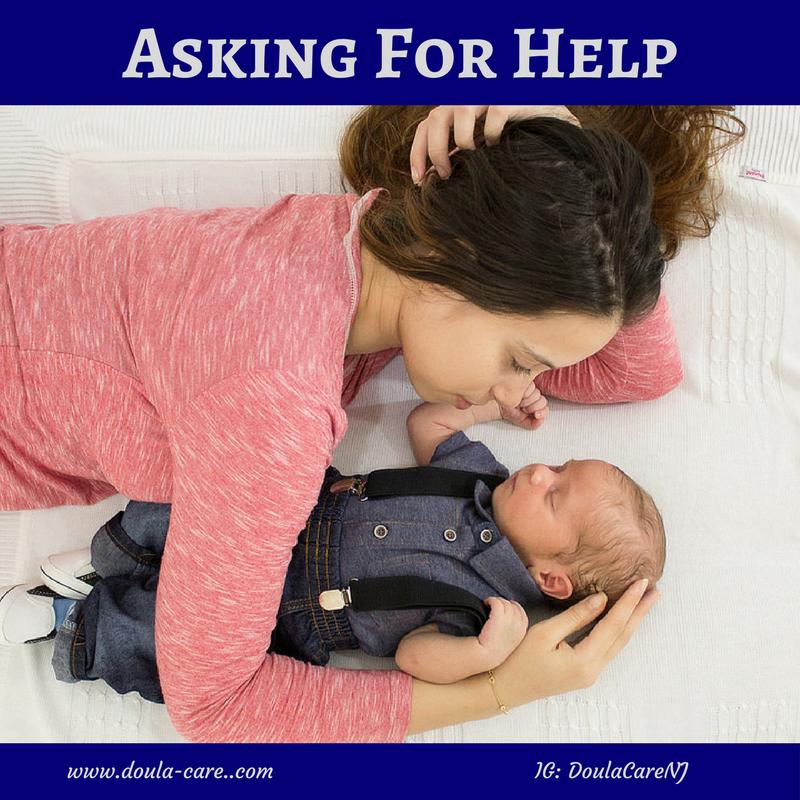|
As parents, we face an overwhelming amount of decisions. It’s tempting to avoid the additional research and contemplation on circumcision…..But, we’re talking about surgery. It’s worth some discussion--even if it feels uncomfortable.
This is a scary one for me. I’ve worked with many families who chose to have the procedure done. As a Postpartum Doula, non-judgmental support is crucial to the work I do. I believe you are the best person to make these choices for your baby. I respect and support your decisions for your family--even if they differ from my own. In the first days of life, your newborn is learning how to breathe, swallow, eat, regulate their own body temperature, as well as processing new stimulations on every level. Why add surgery and recovery to that burden? Circumcision rates vary and are dropping. Currently in the US it’s around 54%. The midwest having a vast majority of circumcision, while the West Coast is around 40%. When these babies reach adolescence, there will a pretty good mix of intact and circumcised boys. It remains an elective procedure. Many health insurance companies do not cover it, and in many states, Medicaid will not cover it. "The health benefits are not great enough to recommend routine circumcision for all male newborns...." according to the American Academy of Pediatrics. I believe that every part of the body serves a function--even if we are yet to understand it fully. I’m hesitant to advocate for the permanent removal of any body part before an individual is old enough to give informed consent. Also, a circumcision can be chosen and performed at any point in a boy’s life….But it can never be undone. What is the benefit of removing the foreskin? It’s not easier hygiene. An intact penis requires no care whereas a circumcised penis requires fresh bandage at every diaper change until it heals. A one percent reduction in the risk of urinary tract infections. Decreased risk of STDs and certain cancers. If you choose to circumcise, consider the timing. Does it need to happen in the first 48 hours? I find it fascinating that newborn vitamin k production appears to kick in on the 8th day of life, which is also when a bris is traditionally performed. Traditionally, circumcisions have been performed with NO PAIN RELIEF or anesthesia. The medical community stated that newborns do not feel pain. There are several studies that prove this is completely untrue. Ideally, seek anesthesia for your newborn, as this is probably what you would want for yourself in that situation. For additional information on circumcision, check out Ask Dr. Sears.
1 Comment
Do you have a hard time asking for help?
My people! Postpartum is especially tricky for those of us who have difficulty here. Our culture has created an elegant trap. First, we deny Postpartum Recovery is a thing. ("Women out in the fields used to give birth, tie the baby to their back and get back to the crops!" Ummmmm. not really. In fact, the vast majority of cultures have a traditional "lying in" period where the new mom goes to bed for about a month.) Second, we pretend like your strength will be measured by how quickly you get back to "normal." (Recall countless tabloid pics of celebrities looking as if they were never even pregnant weeks afterwards....Note their army of personal trainers, chefs, nannies, stylists are rarely pictured.) You are not supposed to "get back to normal." You brought a new human into the world. You are not meant to resume life as it was before immediately. We are designed to SLOW DOWN and FIND A NEW NORMAL. A new way of being in the world with our baby. When I had my first baby, I was emotionally overwhelmed and had not prepared at all for Postpartum. What limited "help" was available was only interested in holding my baby. I didn't trust myself enough to explain what I really needed and I didn't believe they would actually help me with food, laundry, etc. My recovery took at least 4 months. But I was not the only one who paid the price for not knowing any better....My baby missed out on having a healthy, functional intact mother for that time. It can make us feel vulnerable to ask for help. We might be afraid of being judged or even denied. I get it! But, Postpartum is all about stretching into new and uncharted waters. When I had my third baby, I committed to Doulaing myself. I basically stayed in my room for 3 weeks. I graciously accepted meals and friends' offers to take my kids out. And you know what? I was HEALED and recovered by the 4th week. (I was 9 years older than when I had my first, and this was my biggest baby, too!) I gradually eased back to a manageable pace after that. But it was an absolutely amazing contrast to my first and second postpartum experiences. If you get tripped up thinking it is not "necessary" or you're somehow not deserving of the help, think about your baby. Your baby deserves a healthy mama--not one that is struggling with avoidable complications or barely functional. Make a plan for your Postpartum Support. Be brave enough to ask for help when you need it. And, if you are struggling, please reach out. I can help connect you with resources and all communications are completely confidential. Contact me. Or check out some of the amazing resources and support available to Monmouth County moms here. There is an unending stream of misinformation regarding babies and sleep Often, parents feel like they have 2 choices: coping with frequent wakings or some form of "Cry It Out." But, Elizabeth Pantley offers up an elegant, compassionate and practical alternative: "The No-Cry Sleep Solution for Newborns."
Elizabeth Pantley is a mother of four and grandmother who approaches sleep with sensitivity and common sense. She presents evidence-based information on how you can encourage healthy sleep habits from day one, while responding compassionately and individually to your baby. I love that all of her information SUPPORTS healthy bonding and successful breastfeeding. (Many Cry It Out methods jeopardize breastfeeding.) With three children of my own and 13 years as a Postpartum Doula, I wasn't sure how much new information I would find,,,,I was delightfully surprised! Like her other books, The No-Cry Sleep Solution for Newborns is easily approachable, no matter how tired/hormonal/exasperated you are. You'll find clear techniques to help your baby sleep longer while avoiding many common pitfalls (like babies who want to be held, need to be in motion for every sleep event, or need a breast in their mouth to fall asleep). I love that Pantley recognizes and respects both babies and parents as individuals and offers multiple options and strategies for different scenarios. Her approach is gentle, and takes into consideration both newborn and parents' needs during the early weeks, while keeping an eye on the long-view. If all parents read this book before the birth, it could significantly alter the landscape of family life with a baby. Even if you are expecting your fifth baby, this book can empower you with tools to maximize your baby's sleep potential while avoiding the common crutches many babies tend to develop. Childbirth Classes can be the start of an empowered journey into parenthood. While some hospital classes might be sufficient, they rarely compare with independent classes.....Taught by people who don't benefit from you being easy to manage.
You and your partner deserve to know what to expect and what your choices are. This is an opportunity to learn and discuss what your proiorties are. There will be time during your labor when you can't speak for yourself, so your partner needs to be clear on your choices regarding pain relief, cord clamping, skin to skin contact, etc. Monmouth County residents are fortunate to have many amazing Childbirth Class Resources. Bend and Blossom offers Hypnobirthing Classes in Rumson. Birth, Babies and Beyond offers classes in Tinton Falls. Natural Beginnings NJ offers classes in Spring Lake. Your Best Birth offers classes in Red Bank. Mother to Mother offers private classes. If for any reason you can't take a childbirth class, there are alternatives. Read Gentle Birth Choices by Barabara Harper, Ina May's Guide to Childbirth by Ina May Gaskin, and watch The Business of Being Born. Once you've prepared yourself for the hours of labor, take some time to prepare yourself for the days and weeks of the fourth trimester! Pssssst. If you're close to someone who is pregnant or has a baby, this is for you.
New parents are in a sensitive state: sleep deprivation, the emotional rollercoaster of birth and the pressure of trying to maintain their households (or jobs) takes its toll. Most cultures do not expect people to resume their former lives after the birth. They have traditions for supporting the growing family. Mothers are strained the most--babies require round the clock care when new mamas are recovering from birth. Breastfeeding takes up a lot of time and energy in the first few weeks. Because our culture does not recognize the need for extra help in a baby's first weeks, many moms feel inadequate. Here's how you can help. *BE GENTLE! HOW you offer help is as important as WHAT you offer. Be sure to listen to what they want. Be respectful of their space and time--as much as they want to share their baby with you, they also need to rest. *FOOD: New parents need to eat, but have little to no time to shop, cook or prepare food. There are many ways options: home-cooked casseroles, frozen foods, take-out. The point is to get them food and not expect to be entertained in the process. Drop it on their porch or have it delivered. *HOUSEHOLD HELP: This is can be a little more complicated, depending on how well you know the new parents. If they aren't using a service, they'll definitely appreciate help with laundry, running dishwasher, vaccuuming, and generally straightening up. *ERRANDS: Running to the store, dry cleaner, can become very challenging with a newborn. Ask if they need anything from the drug or grocery store. *OLDER CHILDREN/PETS: If this is not their first baby, the older children will really need extra attention. Playdates and park outtings can be a real life saver. Additionally, if they have pets, offer to help with their needs, too. By giving REAL help, you take the pressure off of parents who may feel overwhelmed and not know how to ask you to bring them lunch or take their two year old to the playground. It's too vague to say, "Let me know if you need anything." Step up with specific suggestions. I'll be sharing more specific techniques on how to assemble or be a part of a Welcome Baby Team at Natural Beginnings on Feb. 28, 2013 at 8pm. If you're expecting your first (or third) or if you know someone who is, please come! This presentation is for the whole Welcome Baby Team--Grandparents, relatives, neighbors are encouraged to attend. Donations will benefit the Having Healthy Babies Foundation. For more information: www.naturalbeginningsNJ.com A very close friend is expecting her first baby....Here is my advice.
Dear Sweet Friend, I know you will make the best choices for you and your baby--she/he picked you for a reason! The right birth for you is whatever works. STEP 1: Be EDUCATED! Be an informed consumer. Do your research before the 3rd trimester. Know the risks to unnecessary ultrasounds, induction, early cord clamping,etc. At minimum, watch The Business of Being Born Read: Gentle Birth Choices by Barbra Harper OR Ina May's Guide to Childbirth by Ina May Gaskin I can give you a few more resources, but these are ESSENTIAL! STEP 2: Take care of YOURSELF! The best thing you can give your baby is a happy, healthy mama. Make time to do things that truly make you feel good. Get a foot massage. Do yoga. Walk outside. Watch movies that make you laugh. (If you must watch baby/birth things on TV, please try to view some empowering natural birth videos, too! Subconscious cultural programming about fear/pain is a lot to overcome.) Consider seeing a chiropractor. This can help the baby's position, your balance/coordination, etc. If you're totally freaked out by it, skip it. STEP 3: CHOOSE your provider. Ideally, you've selected an OB/GYN or Midwife who doesn't do routine episiotomies, inductions, and has a low c-section rate....It's never too late to switch to a provider who supports your choices and knows how to help you achieve the birth you want. STEP 4: Assemble your support team. Help your partner prepare. He should hopefully watch/read the minimum resources AND read Natural Childbirth the Bradley Way. (That would be book #3 on the must-read list. There are some great counter pressure techniques in there!) Consider a Birth/Labor Doula. A good doula can help you navigate hospital procedures and use comfort measures and positions to ease labor, and be a consistent calming presence for you both. At minimum, make sure all present at your birth make you feel calm, secure and believe in your judgement. STEP 5: Prepare to surrender. Once you've done your homework, let your baby do the rest. Babies know when they are ready and will initiate labor. Relax, relax, relax. Your body knows what to do. (just as your mother's, grandmother's, and great-grandmother's did!) Labor at home as long as you can. (you'll labor more efficiently and have less disruptions there!) I will love and support your choices--be it an epidural, induction, etc. I don't presume to know what will be the best birth for you and your baby. My wish for you is a birth that makes you feel empowered as a woman and a mother. If you make informed choices in your care, feel like your voice was heard, your desires honored in the birth, you'll treasure the journey....And begin the 4th Trimester in a position of strength. Hugs & excitement for you!!! If YOU have any advice, resources, or things you think I missed, please comment below! |
AuthorPostpartum Doula, Breastfeeding Counselor, Mother of Three. Archives
May 2018
Categories
All
|



 RSS Feed
RSS Feed
